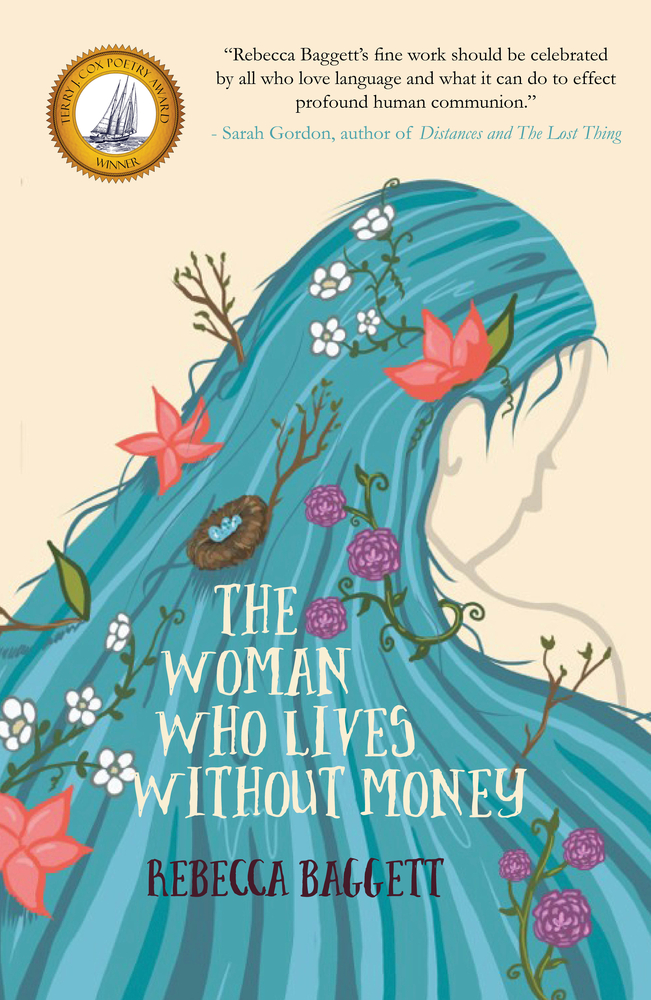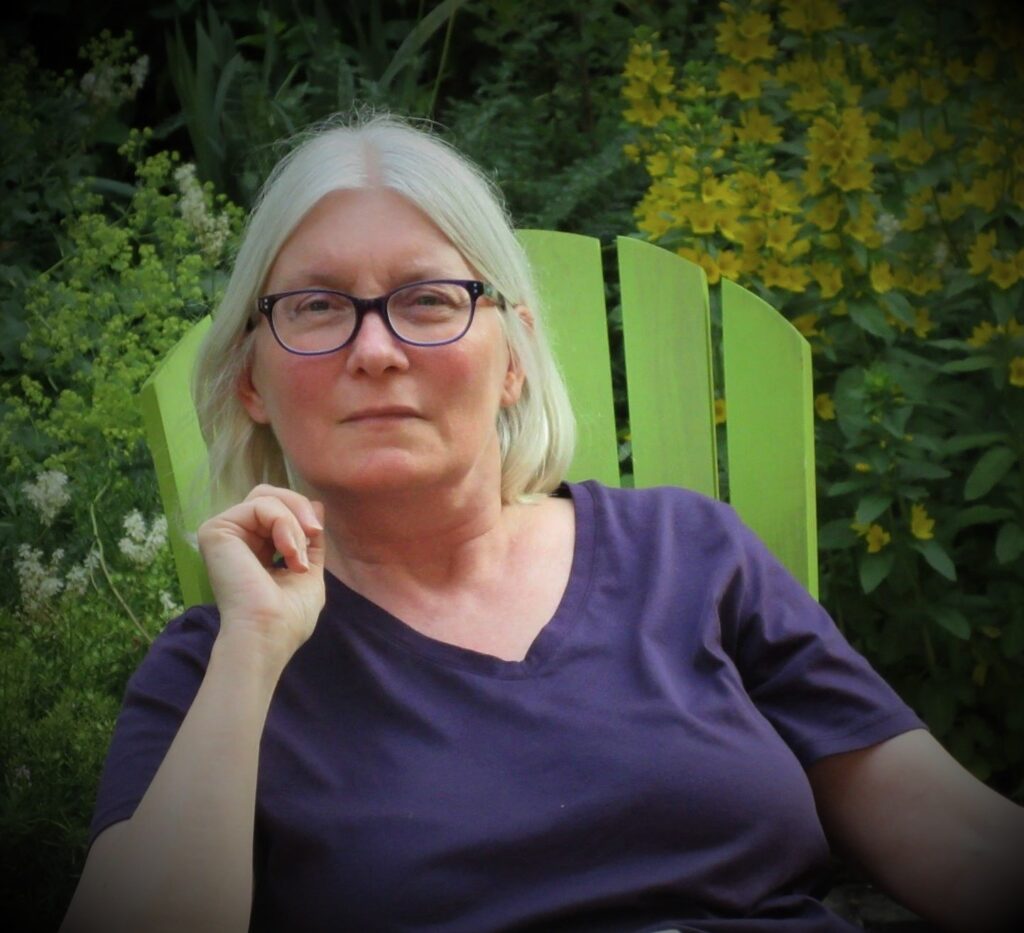Editor’s Note: This exchange is part of a series of brief interviews with emerging writers of recent or forthcoming books. If you enjoyed it, please visit other interviews in the I’ve Got Questions feature.
- What’s the title of your book? Fiction? Nonfiction? Poetry? Who is the publisher and what’s the publication date?
The Woman Who Lives Without Money (poetry), winner of the Terry J. Cox Poetry Award, will be published March 21, 2022 by Regal House Publishing in Raleigh, NC.
- In a couple of sentences, what’s the book about?
The collection spans the arc of a life, with focuses on the landscape of childhood, the natural world, loss, and regeneration. “The woman who lives without money” appears a touchstone for what is everlasting in a world where we face constant turmoil and change.
- What’s the book’s genre (for fiction and nonfiction) or primary style (for poetry)?
I write in free verse, with some of the poems in this collection (“The woman who lives without money” sequence and “A Few Blurbs from My First Book” are prose poems).
- What’s the nicest thing anyone has said about the book so far?
Two of my favorite comments are from fellow poets Eric Nelson and Sarah Gordon:
“Throughout this collection, Rebecca Baggett saves the world over and over again” (Nelson)
“Rebecca Baggett’s fine work should be celebrated by all who love language and what it can do to effect profound human communion.” (Gordon)
- What book or books is yours comparable to or a cross between? [Is your book like Moby Dick or maybe it’s more like Frankenstein meets Peter Pan?]
I believe my themes and the encompassing of a wider vision/natural world within a domestic theme might be reminiscent of poets like Maggie Smith, Barbara Crooker, Linda Pastan.
- Why this book? Why now?
When has the world needed poetry more than now? Through history, poetry has helped us voice the inexpressible and give the challenges of our time a face ‒ here we are again, desperate for a common voice, for a focus on what endures. My poetry offers a realistic gaze at our human situation but also a sense of hope, possibility, transience.
- Other than writing this book, what’s the best job you’ve ever had?
I worked for many years as an academic advisor for humanities majors in the arts and sciences college at the University of Georgia. I advised students majoring in subjects like theatre, linguistics, English, history, anthropology, classics, modern languages ‒ all the subjects with which my work and my heart engage as well. It was incredibly rewarding to be the person to whom they could bring fears and uncertainties and to listen to them find their way to studies that engaged and delighted them. I especially miss hearing what they’re reading, watching my students perform in plays on and off campus, and being able to learn all the contemporary slang right at its source!
- What do you want readers to take away from the book?
A sense of connection with the natural world, with their own history, with the common endeavors and struggle of humanity.
- What food and/or music do you associate with the book?
Elementary school lunchroom milk cartons and little cups of ice cream with the wooden paddle-spoons. Opening my lunchbox to find out what kind of sandwich, what fruit, (most important) what dessert I’d find today, and sharing around with my friends. The scents of fresh-made cotton candy on the boardwalk at Carolina Beach, the sweet sugar scent of Britt’s Donuts overlaid with the taste of salt from the ocean. Mixing fruitcake batter in my mom’s turkey roaster when she baked cakes to send “home” to Pennsylvania. Tables full of Lebanon bologna and pepper cabbage and mashed potatoes and pails of warm milk carried up to the kitchen from my uncle’s barn. The country cooking from my daddy’s family and my husband’s and Mama Bessie ‒ tiny corn bread fritters, fried chicken, creamed corn, red velvet cake, pecan pie. The grit of chickweed and wild violets in my teeth. The vats of coffee consumed while writing these poems, and the dark chocolate devoured in despair when they were rejected.
Music ‒ hmm. Unlike many of my family and friends, I don’t exactly have a “soundtrack” for my life. But I would say that writing these poems brought back some of the songs my mother sang to us at night, lullabies and popular songs from her own youth, and the hymns and Sunday school songs in my Methodist childhood, and the music of the waves that was the backdrop to my childhood, the calls of gulls and terns, and now the songs of sparrows and calls of owls and crows in my own suburban yard.
- What book(s) are you reading currently?
I always have multiple books on the go ‒ this week, I’m reading Vesper Flights, Helen Macdonald’s marvelous collection of essays on the natural world, Pat Barker’s The Ghost Road, the third volume of her WWI series, Isabel Wilkerson’s Caste, at a slow pace because it’s a hard (but essential) read, and the latest issues of The Sun, 32 Poems, Stone Gathering. My poetry stack includes recent work by Kai Coggin, Laure-Anne Bosselaar, Al Maginnes, and Pattiann Rogers. When I finish The Ghost Road, I’ll plunder the stack of novels beside my chair in the living room. If I hit a moment when I just need to get off this planet, I’ll reread Becky Chambers’ Wayfarer series, my most recent science fiction swoon.
Follow Rebecca on Facebook and Instagram.
Buy the book from the publisher (Regal House Publishing) or Bookshop.org.


